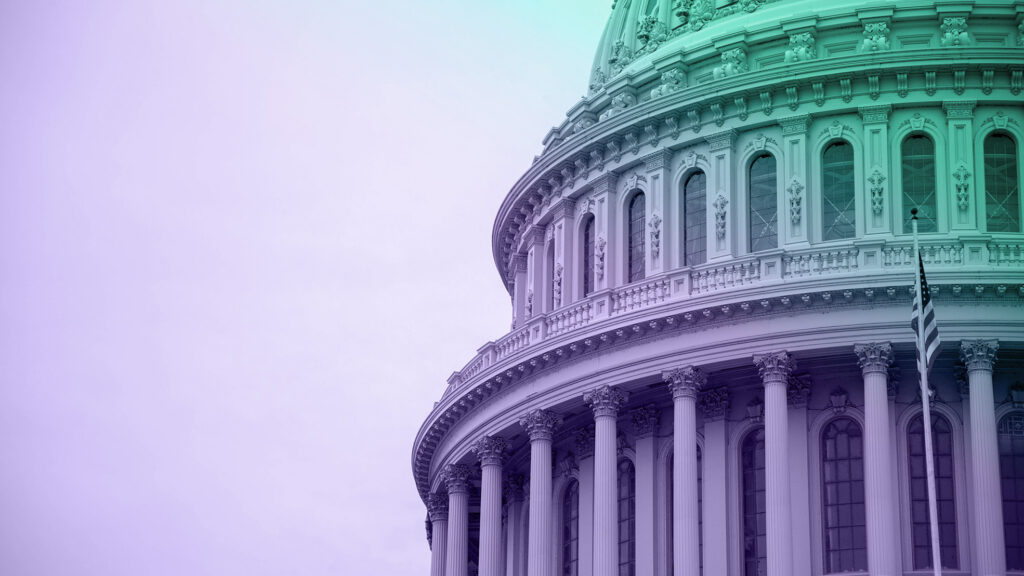By: Max Reale
May 1, 2022 — With less than a dozen working weeks before the Senate departs for their August recess, Senate Democrats have failed to deliver the incremental progress we expected on a FY22 reconciliation package. Our initial cautious optimism that a deal could be reached this year stemmed from an expectation that the Senate would galvanize around a core set of policies in late April while displaying the necessary urgency to accommodate a legislative compromise in the near term.
However, no such urgency or agreement materialized in the latter half of April. Our pessimistic interpretation of this lack of progress on reconciliation is supported by numerous conversations we held in the past weeks with senior Senate Democratic staffers, all of which expressed dwindling confidence in a deal being struck this year. Their expressed apathy on the path forward is as much a hurdle to a deal being struck as it is a symptom of their frustration with the last twelve months of legislating.
We are adjusting our probability of the reconciliation bill’s passage downward from 65% to 45%.
Further complicating the view for a deal on reconciliation, Senator Manchin (D-WV) began the current Senate work period last week by launching a discussion group to find a path forward on a bipartisan energy package. The success – or prolonged duration – of the discussion group may work in opposition of a reconciliation compromise. Senator Manchin also spent the last week pressing for an increased corporate tax rate to 25%, a challenging vote for not just Senator Sinema (D-AZ) but several other moderate Democrats that, to this point, have been less vocal on tax reform.
Weighing on all Democratic legislative decisions is a consistently negative macro environment. The combination of high energy prices, rising inflation, poor stock market returns, and stubbornly bad Presidential poll numbers may make members wary of striking a deal that could render them politically vulnerable by cementing their relationship to this environment so close to the election.
Capstone acknowledges the unresolved issues and persevering political – and logistical – challenges to reaching a reconciliation deal. As such, we are adjusting our probability of bill passage downward from 65% to 45% to reflect Democrats’ stalled progress, the persistently negative macro-environment, Senator Manchin’s shifting legislative demands, and the overall lack of urgency displayed by Senate Democrats for unifying their party before the November election.
How Congress Could Still Reach a Deal on Reconciliation
Nevertheless, deal space does exist, and a deal on reconciliation could still be reached. For starters, no one actually knows how talks between Senator Schumer, Senator Manchin, and the White House are proceeding – not even Manchin’s own staff. The lack of reported progress is concerning, but it may exist beyond the public’s earshot. Furthermore, Manchin’s push for bipartisan energy legislation may just be a savvy play to set up a bipartisan path for a portion of his energy priorities that cannot be passed via reconciliation. This path may be intended as parallel to – and not in opposition of – the reconciliation bill’s energy provisions. Similarly, Manchin’s demands for raising the corporate tax rate may be negotiable or unnecessary – particularly if a final reconciliation deal includes less than $1 trillion in spending – and not intended to derail the reconciliation process.
The Senate has ten working weeks to reach and pass a reconciliation compromise before the effective end of pre-election legislative work. That is more time than it took to reach, draft, and pass the American Rescue Plan in early 2021. While Senate Democrats can execute on their stated 2022 policy goals in the remaining time allotted, the question remains how many of the 50 Democratic Senators genuinely care about passing these policies after months of economic pain and political blame.
About the Author

Max Reale
Managing Director, Healthcare and Macro Policy
Read More from Max:
Why a Reconciliation Package Will Still Pass
Manchin’s Law: The Path Forward for the Infrastructure Bill



























